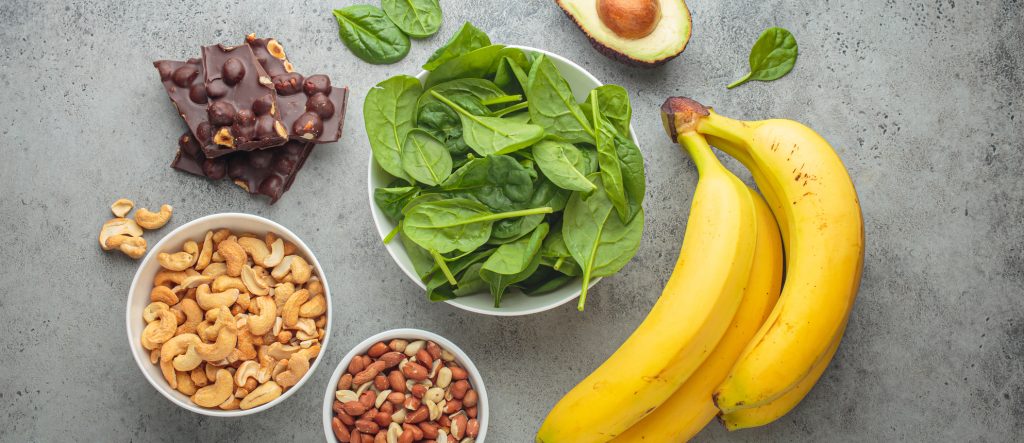When most people think about hearing protection, they picture earplugs at concerts or regular hearing exams—but what about your plate? At Nutech Hearing, we believe that hearing wellness starts from the inside out, and your daily diet might be doing more for your ears than you think.

Just like your brain and heart, your auditory system needs consistent nourishment to function at its best. Studies continue to highlight the powerful connection between nutrition and hearing, particularly when it comes to preventing age-related hearing loss and minimizing the effects of loud noise exposure.
Here’s how certain vitamins and nutrients can help you keep your ears healthy for years to come.
Folate (vitamin B9) is a key nutrient for supporting healthy blood circulation—especially to the inner ear, where tiny hair cells convert sound into signals your brain can understand. These hair cells can’t regenerate once they’re damaged, so keeping them nourished is essential.
Research has shown that people with higher folate intake may have a lower risk of hearing decline as they age. You can boost your folate levels with leafy greens like spinach, romaine, and kale, as well as lentils, asparagus, and fortified grains.
Omega-3s are best known for their heart-healthy benefits, but they’re also important for inner ear function and inflammation control. Found in fatty fish like salmon, sardines, and mackerel, omega-3s help improve blood flow to the cochlea, which may protect your hearing over time.
In fact, research shows that regular fish consumption is linked to a significantly reduced risk of age-related hearing loss. As a bonus, omega-3s are also good for brain function—which is vital since the brain and ears work together to process sound.
Vitamin C, found in citrus fruits, strawberries, and bell peppers, is a potent antioxidant that defends your ears against oxidative stress. This type of cellular damage can build up over time and contribute to both age-related and noise-induced hearing loss.
Adding more vitamin C to your diet helps your body fight off harmful free radicals and supports overall ear cell integrity—especially when combined with other antioxidants.
Magnesium is a mineral that often flies under the radar, but it plays an important role in protecting your ears from loud environments. It helps maintain healthy nerve function and keeps blood vessels in the inner ear from tightening in response to noise exposure.
Some studies suggest that magnesium can reduce the risk of permanent hearing damage following extended noise exposure. You’ll find magnesium in avocados, black beans, spinach, bananas, and whole grains.
Zinc is critical for immune support, which means it may help reduce your risk of ear infections—a common cause of temporary and sometimes permanent hearing issues. It also assists in tissue repair, making it valuable for maintaining the delicate structures of the cochlea.
Sources of zinc include nuts like cashews and almonds, pumpkin seeds, legumes, and fortified cereals. Some research has also suggested that zinc supplementation may help improve recovery for those with sudden hearing loss.
Antioxidants are well-known for their ability to reduce inflammation and prevent cellular damage, two major contributors to hearing loss. A surprising but satisfying source? Dark chocolate. It contains antioxidants and zinc, offering a small but tasty way to give your ears some nutritional support.
While it shouldn’t replace fruits and vegetables, enjoying a little dark chocolate in moderation may provide added benefits to your hearing health.
At Nutech Hearing, we encourage our patients to take a holistic approach to hearing care—and nutrition is one piece of the puzzle. By including more ear-friendly foods in your diet, you can help protect your hearing naturally, especially when paired with other good habits like staying physically active, avoiding excessive noise exposure, and keeping up with regular hearing evaluations.
Remember: a well-fed body leads to a well-functioning auditory system. So next time you plan your meals, think about what your ears might thank you for.
Book a hearing screening with Nutech Hearing today. Whether you’re looking to protect your hearing or manage an existing concern, we’re here to support your hearing wellness—inside and out.